Every developer has that project they build just for the fun of it. You know how it goes: you start by asking “what if?” and then you have something weird and wonderful hours later.
This summer, we decided to celebrate that spirit with For the Love of Code, our first-ever competition for projects built purely for fun. More than 300 developers answered the call. Some leaned on GitHub Copilot to refactor ideas, fix bugs, and spark inspiration. Some teamed up. Others flew solo, guided only by caffeine and curiosity.
Entries spanned everything from a Breakout game powered by your GitHub graph, to a laugh-track that plays on every commit, a Yelp-style code reviewer in VS Code ★★★★☆, a Copilot you can literally see on camera, and even a comic strip made from your release notes.
We invited participants to build anything that sparks joy across six whimsical categories:
- 🔘 Buttons, beeps & blinkenlights: Hardware hacks, LEDs, sensors, and gadgets galore.
- 🖥️ Terminal talent: Command-line creations and retro computing love letters.
- 🌐 World wide wonders: Browser-based experiments, apps, and interactive art.
- 🤖 Agents of change: AI, bots, and automation with heart.
- 🕹️ Game on: Games big or small, serious or silly.
- 🃏 Everything but the kitchen sink: The wildcard (if it doesn’t fit anywhere else, it fits here).
Meet the winners: Open source experiments, AI side projects, and more
Here are the top three entries from each category.
🔘 Buttons, beeps & blinkenlights
Plane Tracker: DIY radar on your desk
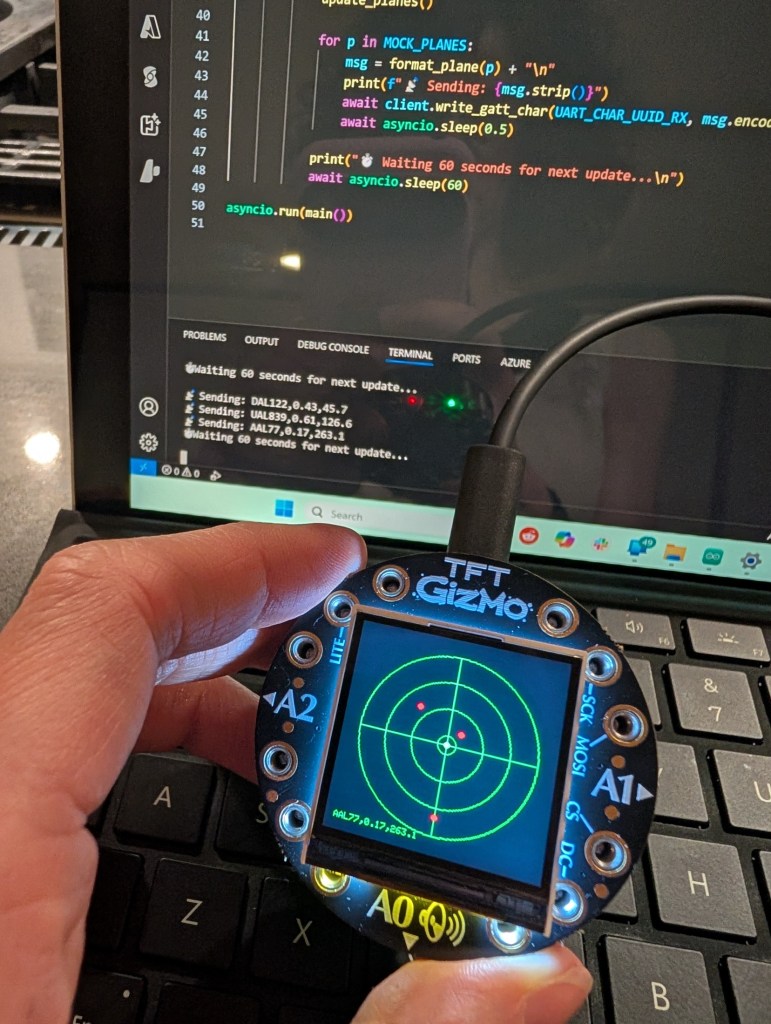
Plane Tracker by @cpstroum is a DIY radar that uses an Adafruit Circuit Playground, Bluetooth, and the ADS-B Exchange API to fetch live flight data. It turns nearby planes into a real-time mini radar display.
Copilot cameo: GitHub Copilot helped @cpstroum with Git itself and with structuring the initial project for their first real push to GitHub. Thanks, Copilot! And welcome aboard, @cpstroum!Cadrephoto: The easy e-ink photo frame

Cadrephoto by @ozh is a Raspberry Pi and e-ink photo frame that displays pictures emailed to it (no app, no setup, perfect for less tech-savvy people). It checks an inbox, downloads the latest photo, and updates the screen automatically.
Copilot cameo: GitHub Copilot helped @ozh with their first Python project. It worked smoothly inside JetBrains IDEs and made code completion feel almost like magic.BuildIn: Traffic-light builds for your repository
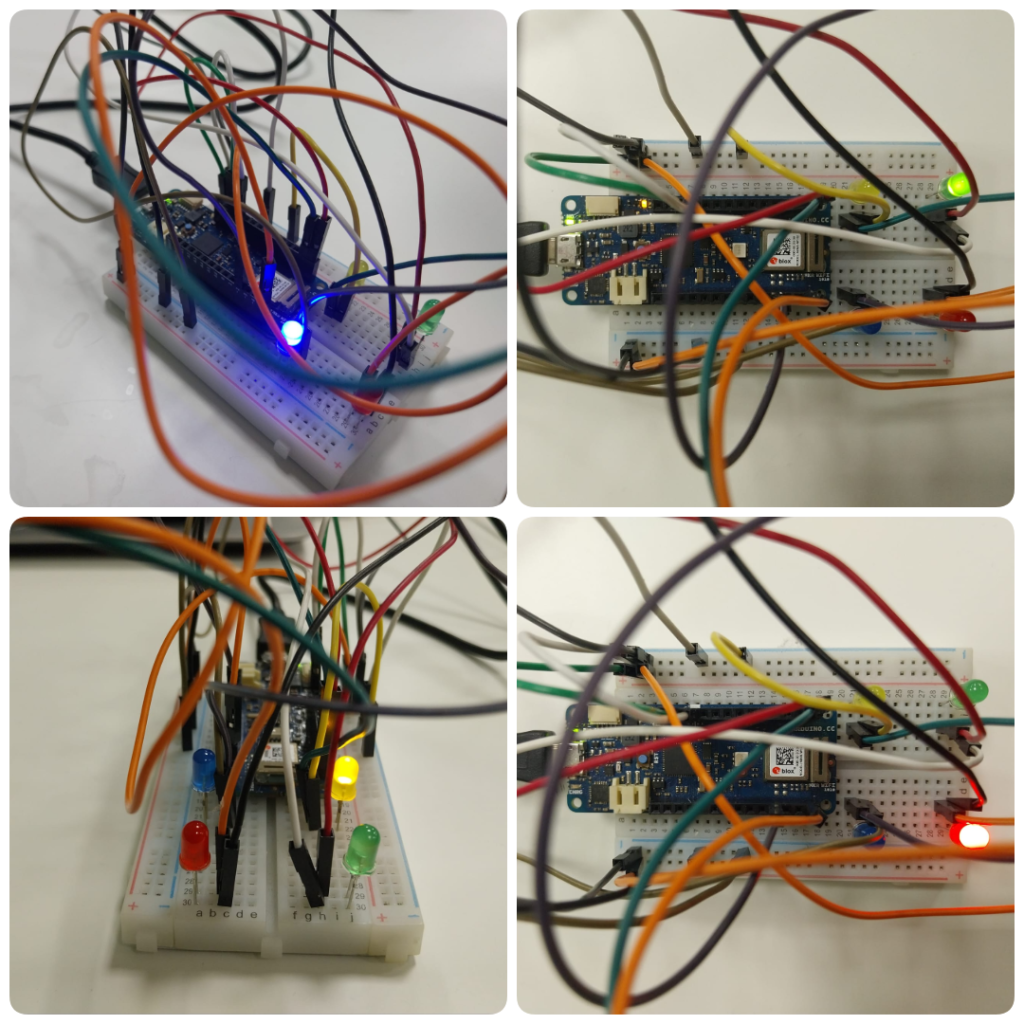
BuildIn by @SUNSET-Sejong-University and @lepetitprince99 is a real-life traffic light for your code that sits on your desk. Using an Arduino and the GitHub API, it lights up red, yellow, green, or blue to show your repository’s build status at a glance.
Copilot cameo: GitHub Copilot helped @SUNSET-Sejong-University debug and optimize their code. It saved time tracking down tricky hardware issues and made troubleshooting much easier.🖥️ Terminal talent
RestoHack: A roguelike resurrected from 1984

RestoHack by @Critlist resurrects the 1984 roguelike game that inspired NetHack, rebuilt from the original source with modern tools and a preservationist’s touch. It compiles cleanly, runs faithfully, and proves that forty years later, permadeath still hits hard.
Jukebox CLI
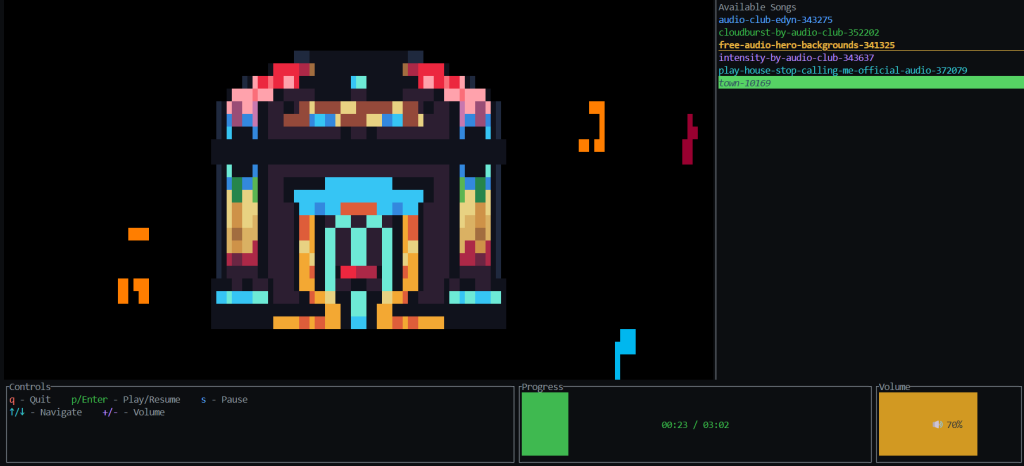
Jukebox CLI by @FedeCarollo is a colorful, animated jukebox that runs right in your terminal. Built in Rust with Ratatui, it plays MP3s, shows floating musical notes, and color-codes each track in a scrollable playlist. You can play, pause, skip, and adjust the volume without ever leaving your command line.
Copilot cameo: GitHub Copilot helped @FedeCarollo explore unfamiliar Rust libraries and find their footing.Tuneminal: Sing your commits from the command line

Tuneminal by @heza-ru turns your terminal into a full-blown karaoke stage with scrolling lyrics, live audio visualization, and scoring that rewards your inner rock star. It’s open source, cross-platform, and the perfect excuse to sing while that git clone takes a while.
🌐 World wide wonders
Netstalgia: Surf the ‘90s web on virtual dial-up
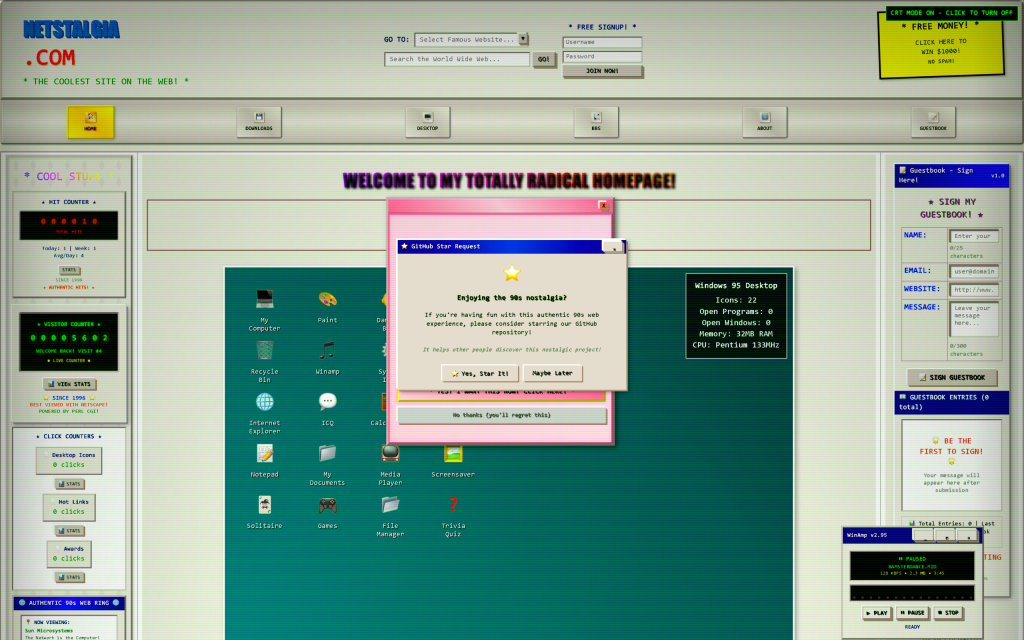
Netstalgia by @heza-ru (again!) is a fully functional ‘90s web fever dream built with modern tech, but visually stuck on virtual dial-up. It’s got dancing babies, popup ads, a fake BBS, and more CRT glow than your old Gateway 2000 ever survived.
In true retro internet spirit, it even ships with a fake GitHub Star Ransomware—a tongue-in-cheek “virus” that demands you star the repo to “decrypt your files.” A clever (and harmless) new twist on the eternal quest for GitHub stars. ⭐💾
Bionic Reader: Speed read your screen
Bionic Reader by @Awesome-XV rewires how you read by bolding the first few letters of each word so your brain fills in the rest. It’s like giving your eyes a speed boost without the caffeine jitters to read faster than ever.
Copilot cameo: GitHub Copilot helped @Awesome-XV write project documentation and scaffold the initial codebase.The Git Roast Show: Roast your GitHub profile… lovingly

Git Roast Show by @rawrnuck and @Anmol0201 is a full-stack web app that humorously “roasts” your GitHub profile. Built with React, Vite, and Express, it fetches live GitHub data to generate personalized, sound-enhanced, and animated comedy roasts.
Copilot cameo: GitHub Copilot helped @rawrnuck understand algorithms and handle the repetitive parts of their project.Nightlio: a mood tracker you actually own
Nightlio by @shirsakm is a privacy-first mood tracker and daily journal you can self-host in minutes. Log how you feel on a 5-point scale, add Markdown notes, tag entries like #Sleep or #Productivity, then explore calendars, streaks, and simple stats to spot patterns. It runs anywhere with Docker, stores data in a local SQLite file, and keeps things clean with JWT-protected APIs, a React/Vite front end, and optional Google OAuth. No ads. No subscriptions. Your server, your rules.
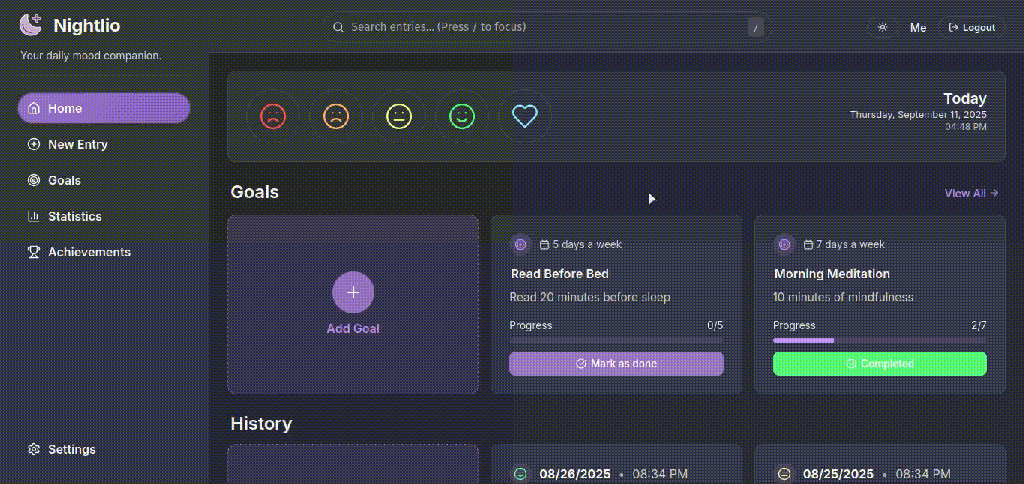
Note: Because @heza-ru placed in two categories, we’ve added a fourth winner to this category.
Copilot cameo: GitHub Copilot helped @shirsakm with refactors, color palette updates, and codebase-wide changes that would have taken much longer by hand.🤖 Agents of change
Neosgenesis: AI that thinks about thinking
Neosgenesis by @answeryt is a metacognitive AI framework that teaches machines to think about how they think. It runs a five-stage loop (think, verify, learn, optimize, decide) while juggling multiple LLMs, tools, and real-time feedback. A multi-armed bandit picks the best reasoning patterns, and when it stalls, an “aha” mode explores fresh paths.
MediVision Assistant: Accessible AI healthcare for all
MediVision Assistant by @omkardongre is an AI healthcare companion that helps elderly and disabled users manage their health through voice, image, and video. Users can scan medications, analyze skin conditions, log symptoms by voice, and chat with an AI doctor-like assistant.
Copilot cameo: GitHub Copilot helped @omkardongre generate React components, API templates, and AI integration code. It handled the boilerplate so they could focus on building features and improving the experience.Quiviva: The résumé that talks back
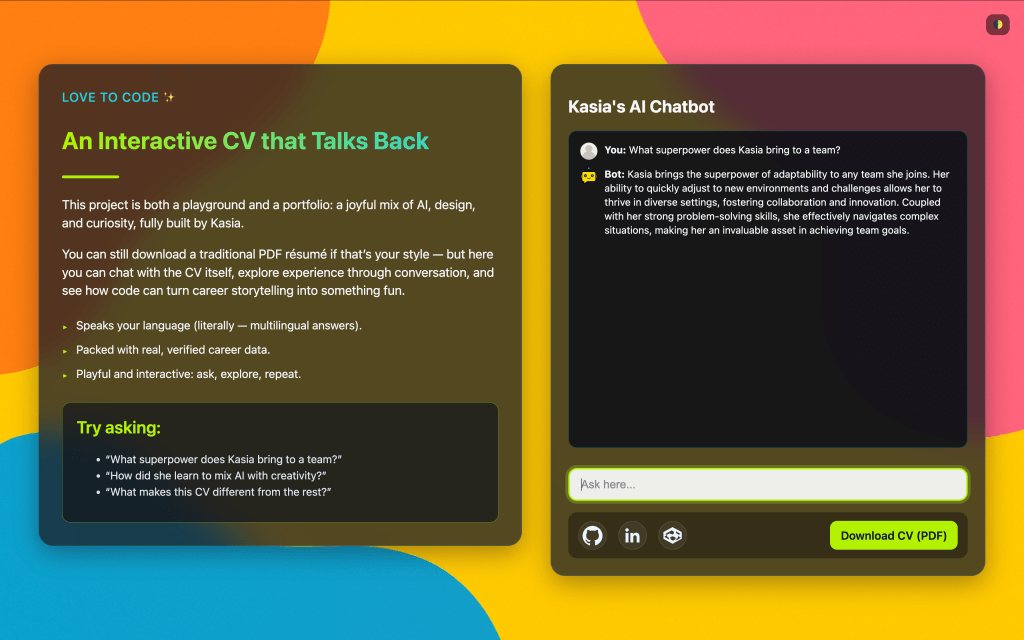
Quiviva by @katawiecz is an interactive AI-powered CV that turns a job hunt into a chat adventure. Ask about skills or projects, or type “Gandalf” to unlock secret nerd mode. All this goes to show that even résumés can be fun.
🕹️ Game on
AI-Dventure: Infinite worlds, infinite choices

AI-Dventure by @FedeCarollo is an interactive text adventure built in Rust and powered by OpenAI’s models. Players explore dynamically generated worlds in fantasy, horror, sci-fi, or historical settings where every command shapes the story and no two runs are the same.
BeatBugging: Debug to the beat

BeatBugging by @sandra-aliaga, @Joshep-c, @RyanValdivia, and @tniia turns debugging into a rhythm game that converts your system logs into musical beats. Built in Python, it lets you fix bugs to the rhythm on a 5-by-5 grid and makes debugging sound unexpectedly good.
Copilot cameo: GitHub Copilot helped the team figure out next steps when they got stuck, offering helpful hints that kept development moving.MuMind: A multiplayer battle of wits and vibes
MuMind by @FontesHabana is a web-based multiplayer version of the party game Herd Mentality, where players try to match the majority’s answers to score points. Built with React, Tailwind CSS, and Framer Motion, it offers multilingual support, lively animations, and a smooth, responsive experience.
🃏 Everything but the kitchen sink
GitFrag: Defrag your contributions graph
@chornonoh-vova built GitFrag to reorganize your contributions graph using classic sorting algorithms (bubble, merge, quick, and counting sort). Each is visualized with smooth progress animations, GitHub login, and dark mode support. There’s also a wonderful writeup of how the developer approached it.
Copilot cameo: GitHub Copilot helped @chornonoh-vova structure their understanding of algorithms and add thoughtful details that made their visualization shine.Code Sensei: Meditate your way through VS Code
Code Sensei by @redhatsam09 turns your VS Code sessions into a zen pixel adventure where your focus fuels the fun. Type to walk, pause to hop—but stay away too long away and your sensei meets a dramatic, 8-bit demise.
Reviewer Karma: Good vibes for great reviews
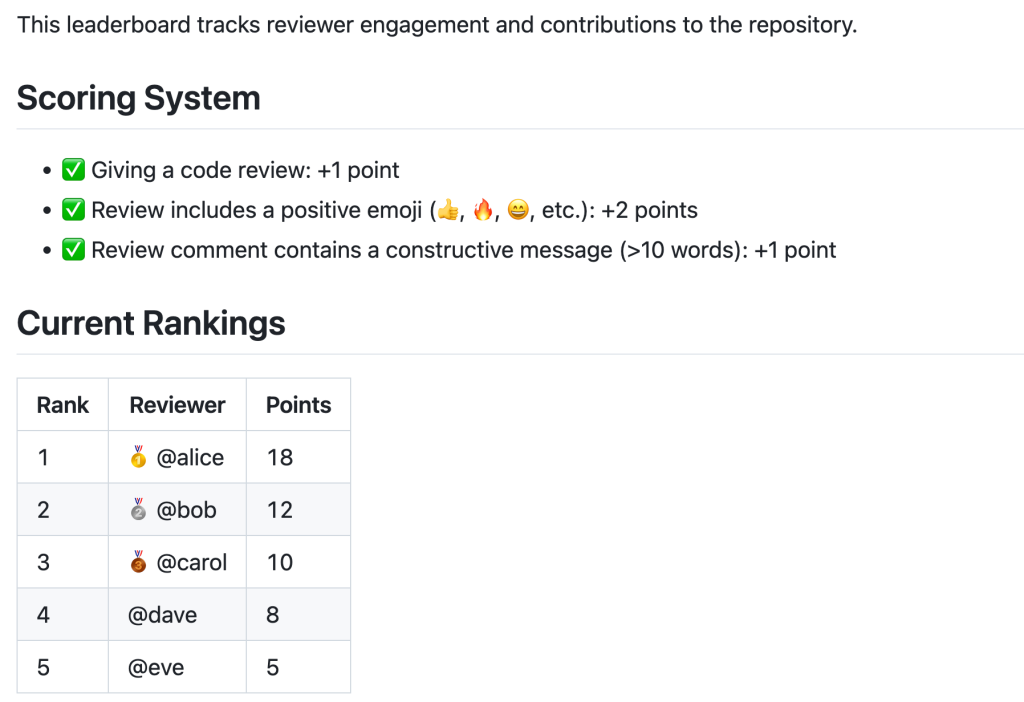
Reviewer Karma by @master-wayne7 keeps your pull requests peaceful by rewarding reviewers for good vibes and great feedback. Every emoji, comment, and code critique earns points on a live leaderboard that turns pull request reviews into a friendly competition.
Copilot cameo: GitHub Copilot helped @master-wayne7 write efficient Go code for the GitHub API, structure logic for assigning karma points, and handle repetitive tasks like error checking and markdown generation. It kept the project flowing smoothly from start to finish.These projects show what’s possible when we let our curiosity take center stage
Remember these are hackathon projects. They might not be feature complete, there may be bugs, spaghetti code, and the occasional rogue program escaped from the Grid. But they are clear examples of what we can accomplish when we do something just for the love of it.
All of our category winners get 12 months of GitHub Copilot Pro+.
If For the Love of Code proved anything, it’s that creativity and code thrive best together—especially with Copilot lending a hand.
Shoutout to the makers
Congratulations to all of our winners: @Anmol0201, @answeryt, @Awesome-XV, @chornonoh-vova, @cpstroum, @Critlist, @FedeCarollo, @FontesHabana, @heza-ru, @joshep-c, @katawiecz, @lepetitprince99, @master-wayne7, @omkardongre, @RyanValdivia, @ozh, @rawrnuck, @redhatsam09, @sandra-aliaga, @shirsakm, @SUNSET-Sejong-University, @tniia.
Massive thank you to our judges, which included a mix of GitHub Stars, Campus Experts, and GitHub Developer Relations friends: @Ba4bes, @colbyfayock, @j0ashm, @JuanGdev, @howard-lio, @luckyjoseph, @metzinaround, @Taiwrash, and @xavidop.
And thank you Copilot for your assistance!
Now back to work everyone! Playtime is over.
💜 If you enjoyed For the Love of Code, stay tuned… Game Off 2025 begins this November!
The post From karaoke terminals to AI résumés: The winners of GitHub’s For the Love of Code challenge appeared first on The GitHub Blog.
This summer, we invited devs to participate in our hackathon for joyful, ridiculous, and wildly creative projects. Here are the winners of For the Love of Code!
The post From karaoke terminals to AI résumés: The winners of GitHub’s For the Love of Code challenge appeared first on The GitHub Blog.





Social Plugin